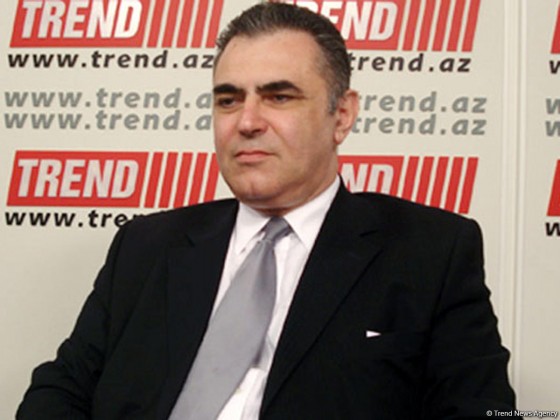
The Nagorno-Karabakh conflict is the most serious problem in the region, Dennis Sammut, the British expert, the director of the LINKS research center in London said.
Sammut made this statement during a lecture at ADA University in Baku.
“The conflict is not frozen,” he said. “The situation is becoming more dangerous every year.”
The expert said that it is necessary to raise the conflict settlement to a new level.
He said that the two sides must focus on the things necessary for people.
"The civil society is a concrete element, forming the society, rather than an ephemeral concept,” he said. “It is necessary to create more contacts between people."
"People and civil society should be involved in the conflict settlement,” he said. “The international community must be more creative. One must not settle down by the fact that it was possible to organize another meeting at the highest level."
“The EU must play a more active role in the conflict settlement because the South Caucasus is part of Europe, a neighbor of the EU,” he said.
As for the activity of the OSCE Minsk Group, Sammut said that the work of the Minsk Group must be discussed and considered at all levels.
"The work of the OSCE Minsk Group must be discussed at the level of analytical centers as part of the PACE,” he said. “The EU institutions are not only entitled but obliged to speak about this problem.”
“I think the OSCE Minsk Group’s recent statement on the discussion of two resolutions about Azerbaijan within the PACE winter session is misunderstanding of what the role of PACE is,” he said. “I think in the future we will see more institutions interested in resolving the Nagorno-Karabakh conflict and contributing in its solution."
The conflict between the two South Caucasus countries began in 1988 when Armenia made territorial claims against Azerbaijan. As a result of the ensuing war, in 1992 Armenian armed forces occupied 20 percent of Azerbaijan, including the Nagorno-Karabakh region and seven surrounding districts.
The two countries signed a ceasefire agreement in 1994. The co-chairs of the OSCE Minsk Group, Russia, France and the US are currently holding peace negotiations. Armenia has not yet implemented the UN Security Council’s four resolutions on withdrawal of its armed forces from the Nagorno-Karabakh and the surrounding districts.
Trend
